VIDEO GAME LAW (Fall 2013)
University of British Columbia Law School | Allard Hall; Law 423B.001
Fall 2013: Wednesdays, 10:30 a.m. to 12:30 p.m. Room B101
Jon Festinger, Q.C.
Centre for Digital Media/Festinger Law & Strategy
Work: 604-568-9192 Cell: 604-837-6426
E-mail: jon@fblawstrategy.com; jfestinger@telus.net
Youtube: http://www.youtube.com/user/zenracer49
Twitter: @gamebizlaw
Xbox Gamertag: cdmjon
Office Hours: Wednesdays 2:30 – 4:00 PM, Room 469 Allard Hall
Course Website: http://www.videogame.law.ubc.ca
(Thanks to UBC Centre for Teaching, Learning & Technology for design, implementation and continuing support)
Twitter to Website: Add #ubcvgl to tweets and re-tweets to post in Twitter widget at Course Blog
Evaluation:
Attendance and participation (including contributions to http://videogame.law.ubc.ca etc.) 30%
Term Paper/Major Project (18 to 20 pages or equivalent): 70%
Note with respect to class participation: Factors taken into consideration are attendance, level of engagement in course related discussions & activities including contributions to http://videogame.law.ubc.ca (or anonymous equivalent contributions to the instructor), evidence of preparation for class, contributions to “Discussion Hour’s”, evidence of attention to the analysis of others and consideration of how such analysis might affect one’s own.
Note with respect to term paper/major project: Given the emergent nature of the subject matter, the opportunities for scholarship are vast. Cases and previous legal academic contributions have almost exclusively been non-Canadian and have generally not focused on how court decision in other jurisdictions might be resolved under Canadian law. That said you are not limited to such topics or perspectives. As well, large territories of legal interest have simply gone unexplored and even undiscovered. Grading will reward thoughtfulness, incisiveness, originality and depth of research, potential for publication/public availability as well as rigorousness of analysis and clarity of presentation. Term paper is due in hard copy form (with digital copy if convenient) by 4 P.M. on the last day of the exam period (Wednesday December 18, 2013).
All UBC law students are subject to the University’s rules on Academic Misconduct (http://vpacademic.ubc.ca/integrity/ubc-regulation-on-plagiarism/), and are expected to act with academic integrity at all times. Students should be especially aware of the University’s rules in relation to plagiarism. Plagiarism includes: copying the work of another student; copying or paraphrasing from a textbook or reference book, journal article, case or electronic source without proper footnoting; copying your own work that has already been submitted for another course in this degree or another degree, passing off the ideas of another person as your own. If you plagiarize, you will be subject to penalties set out in the UBC calendar (http://www.calendar.ubc.ca/vancouver/index.cfm?tree=3,54,111,959)
A. Abstract:
“When any new form comes into the foreground of things, we naturally look at it through the old stereos. We can’t help that. This is normal, and we’re still trying to see how will our previous forms of political and educational patterns persist under television. We’re just trying to fit the old things into the new form, instead of asking what is the new form going to do to all the assumptions we had before.” – Marshall McLuhan (1960)
Video games create virtual worlds that players physically interact with. In so doing video games upset the traditional media apple cart. The gamer becomes the controller of a responsive virtual world, rather than simply a passive “receiver” of images and sound.
North American video game revenues routinely surpass both domestic film box office receipts and music sales. Video games continue to grow faster than almost any other media. Vancouver is one of the largest and most sophisticated centers of video game production in the world.
The creation, dissemination and enjoyment of interactive entertainment is governed by a multi-dimensional grid of international and domestic laws relating to intellectual property, communications, contracts, torts, privacy, obscenity, antitrust and freedom of expression. The myriad legal issues currently manifest in digital media often originated in games. Video gaming has presaged the now rapid rise of real-time social media communities. By building additional levels for their favorite products gamers have for decades been engaged in crowd sourcing, user-generated content and remixing source materials. Games also consistently lead technological, interactive and creative advancements of the digital age.
Threatening intellectual property orthodoxies has literally always been part of the game. It can easily be suggested that the legal and ethical issues in all media spaces may be best and most critically explored and understood through the lens of video games. Accordingly the processes of creating and playing games constitute a useful proving ground for legal constructs applying to creativity. Given all of this occurs with a core demographic that includes very large numbers of children considerably complicates the resulting analysis.
The goal of this course is to continue scholarship in the area. It also forms part of a cluster of courses both at UBC Law School related to the media, entertainment and communications industries.
The pedagogic concept of the course is to map and design learning territories to be explored by the students and provide as many tools as possible for that exploration. Accordingly there are multimedia components of the course including a website containing past lectures, discussion forums and resource materials http://www.videogame.law.ubc.ca
Industry expert guest speakers appearing in person and or by remote connection also play a significant role.
B. Base Text:
“Video Game Law, 2nd Edition” (LexisNexis, 2012) by Jon Festinger Q.C., Chris Metcalfe & Roch Ripley
C. Syllabus:
Introduction to the Course
Class 1: September 4, 2013
Logistics:
- Media-capture
- Releases
- Evaluation
- Discussion Hour structure speakers + questions/conundrums
- Website + “News of the Week” + “What is Your Take?” + living/evolving
- Pedagogy: Course as game design
- Why the intense slides?
Jon’s Talk – “Introduction”:
Instructor bio & biases. Overview of course themes, objectives, questions seeking answers & answers seeking further questions.
What is a game? The roots of video games in play (fun) + creativity. How different/same as other media?
Are video-games a “media”? D.L. Shaw, “ The Rise and Fall of American Mass Media: Roles of Technology and Leadership”; April, 1991 “Roy W. Howard Lecture” Indiana University.
Catalogue of firsts & barriers broken by video games: interactivity, voice over IP, open world, social, avatars (zeitgeist, memes, identity & equality).
Why the transformation to digital matters legally, psychologically and philosophically. Main metaphor: initiating content rather then receiving content (Television as “transmitter” to gamer as “transmitter’).
Recurring Themes:
- Double Standards test (Digital Ethics).
- Legal constraints on (digital) creativity.
- Idea/Expression dichotomies.
- Moral Right(s), Copy Left.
- The diminishing Magic Circle.
- The Post IP World – contract or..?
- Right to create/Right to Mod (Right to Inter-Op too)? – Un-enumerated rights of Freedom of Expression meets Freedom of Thought. Your creation is protected, but not your right to create?
- Four memes: Creating, Connecting, Controlling, Conciliation.
Discussion:
- Open input/comments/reactions
Materials:
1. A Brief History of Videogames – Polygon (2:54)
2. History of video games interactive timeline – Computerspielemuseum
3. Copyright Law and Video Games: A Brief History of an Interactive Medium (Draft Chapter) – Prof. Greg Lastowka
4. IGN’s 25 Greatest Breakthroughs in Video Game History – IGN January 30, 2012
5. Largest space battle in history claims 2,900 ships, untold virtual lives – The Verge July 28, 2013
Possible Guests for “Discussion Hours”
A. (Vancouver based non-law) Don Mattrick* – Zynga; Ian Verchere* – Roadhouse Interactive; Steve Rechtschaffner* – formerly Microsoft, EA, Nexon .
B. (Vancouver based law) Jim Alam* – Koffman Kalef LLP; Chris Bennett – Davis LLP; Brian Dartnell* – EA; Anoop Desai – EA; Joel Guralnick – Vision Critical; Chris Metcalfe – SAP AG; Roch Ripley* – Gowlings.
C. (Remote law) Alan Bruggeman* – Microsoft; Roxanne Christ – Latham & Watkins LLP; Greg Lastowka* – Rutgers; Joel Linzner – EA; Jennifer Lloyd Kelly* – Fenwick & West LLP; Kraig Marini Baker – Davis Wright Tremaine LLP; Jas Purewal – Osborne Clarke; Patrick Sweeney* – Reed Smith.
Other Possible Guests:
Jullian Dibbel – University of Chicago law student; Andy Mahood – video game simulation columnist.
* = confirmations of interest received
Part A. Creating
Class 2: September 11, 2013
Jon’s Talk – “If Picasso had painted a round object…”:
From ‘documents to data’ – comic books, pinball machines and Dungeons & Dragons became videogames.
How & why did video gaming crack the difficult code of community building so easily? Consequences.
Video games as the return of the oral narrative. Do video games emulate James Joyce’s literary techniques?
The application of real world laws to virtual environments. Is there a virtual world? Is WoW its own country? (Duranske)
What are the threshold legal/structural issues for transformative media?
The road from disrespect to eventual acceptance of games by courts (& the censoriously inclined). Introduction to the possible irony of that result.
From no copyright in card games, sports, leisure as the starting point to the idea/expression dichotomy in the digital age.
Comparing game related censorship to censorship of other kinds of information/entertainment. Blaming technology. Legal implementations of content neutrality (& not).
(Hook to next talk in terms of why expression/speech are not paramount and that the real censors are legal concepts we might not at all expect….)
Materials:
1. Text, pp. 1-7; Text, pp. 5-40, 213-231
2. Bruce E. Boyden, Games and Other Uncopyrightable Systems 18 Geo. Mason L. Rev. 439 (2011)
3. IGN’s list of Culturally Censored Games
4. Stern Electronics v. Kaufman 669 F.2d 852 (2nd Cir. 1982)
5. Atari v. Oman 888 F.2nd 878 (D.C. Cir. 1989)
Discussion Hour:
Roch Ripley of Gowlings (Part 1) will speak on how the evolution of IP Law and “Trolls” have affected users and rights-holders.
Class 3: September 25, 2013
Jon’s Talk – John Milton Plays Grand Prix Legends:
An analysis of freedom of expression/speech versus… 1. Privacy; 2. Contracts; 3. IP; 4. Negligence.
Constraints on Creativity; preliminary typology.
Impacts & perspectives on the idea/expression dichotomy.
Fundamentals or Fundamentalism: Introductions to Privacy Literalism and IP Literalism – the positional paradoxes and political excesses of anti-piracy and pro-privacy in a video gaming context. Evolving a single standard for creators as users & users as creators.
Correlating economic growth, Rule of Law Index & I.P. stringency.
(Hook to next talk – now that we have creativity, content and contradictions accounted for, what is the next horizon? Remixing in games…next week…)
Materials:
1. Text, pp. 183-211
2. Areopagitica John Milton (1644)
3. Winters v. New York 68 S. Ct. 665 (U.S. 1948)
4. Montreal v. Arcade Amusements Inc. [1985] 1 SCR 368
5. Brown v. Entertainment Merchants Association 131 S. Ct. 2729 (2011)
Discussion Hour:
Guest Speaker: Steve Rechtshaffner on The Structure of the Video Game Industry.
Class 4: October 2, 2013:
Jon’s Talk – Right to CreaTe or Rights of Creation:
The Right to Mod? Is content original? Is “authorship” a fiction? The Right to CreaTe?
The importance of Minecraft.
Modalities, histories and choices in reconciling IP & Freedom of Expression. Distinguishing the “Duke Nukem” & “iRacing” cases. Distinguishing GPL (community) & MS Flight Simulator SDK.
The maturity factor: Minecraft/Tekkit. “Garry’s mod”, COD &… (1. GTA – Hot Coffee; 2. Dead or Alive: XBV). MS Flight Simulator SDK (as it then was)…
Moral rights & an evolving “CreatorRight”. The evolving reinterpretations of fair dealing/fair use as applied through principles of technological and content neutrality.
Non Fair Use/Dealing defenses – what copyright does not protect: ideas, genres, scenes a faire, stock characters, ideas merged with expression (?)
IP Paradoxes.
Free expression/speech & copyright: Is Fair Use/Dealing wholly within copyright or a speech right? – An analysis of the implications of the statutory history leading to “The Statute of Anne”.
Step 1: Games as uncopyrightable systems? – Step 2: Is “fashion” relevant?
The SCC “penatology”. Redefinitions of fair dealing/use or steps to a new “right”.
The morality of “moral rights”.
(Cliffhanger to next four talks – re “connecting through games”….How do we connect today?…Mostly through technology. How does the law mediate our connections? Mostly through contract being paramount to everything else…& the confusion of different technologies attracting different regulatory/legal responses. Stay tuned…)
Materials:
1. Text, pp. 29-41, 55-105, 112-113
2. Johanna Blakley: Lessons from fashion’s free culture, TedX 2010 (16:07)
3. Jack M. Balkin, Virtual Liberty: Freedom to Design and Freedom to Play in Virtual Worlds 90 Virginia L. Rev. 2043 (2004)
4. F. Gregory Lastowka & Dan Hunter, The Law of Virtual Worlds 92 Calif. L. Rev. 1 (2004)
5. Micro Star v. FormGen Inc. 154 F.3d 1107 (9th Cir. 1998)
6. iRacing Motorsport Simulations, LLC v. Robinson No. 05-11639 NG (D. Mass. May 28, 2009)
Discussion Hour:
Greg Lastowka of Rutgers Law will speak on User Generated Content (by video-conference). Please read Minecraft, Intellectual Property, and the Future of Copyright in preparation.
Part B. Connecting
Class 5: October 9, 2013:
Jon’s Talk – Creators, Consumers & Users:
From Creating to Connecting.
Modelling models of creativity.
Should all IP be “use it or lose it”?
Why don’t CD’s have an End User License Agreement while games do? Software development & the evolution of licensing.
Legal fictions: EULA’s; TOS’ & the consumer instinct for expediency – click-wrap cases and content ownership issues.
The first sale doctrine & EULA restrictions (Redigi).
…the chasm of contracting out: Remind me again, why is the prevalent regime that of millions of very similar yet (fictionally) individual contracts? The potential impact of consumer protection laws internationally on the “standard” of “standard form” contracts.
(Hook to next talk – so what sense can we make of the significant underlying role of contract law in the video game relationships)
Materials:
1. Text, pp. pp. 93-97, 104-105, 171-175. 231-237, 243-291 (model Agreements)
2. Steven Johnson: Where good ideas come from, TedTalks 2010 (18:07)
3. The Economy of Ideas – John Perry Barlow Wired 2.03 (March 1994)
4. Davidson & Associates v. Tim Jung 422 F.3d 630 (8th Cir. 2005)
Discussion Hour:
Guest Speaker: Ian Verchere, Founder & Chief Creative of Roadhouse Interactive http://ca.linkedin.com/in/ianverchere will speak on the “creator’s” perspective.
Class 6: October 16, 2013:
Jon’s Talk – 10 Clauses – 10 Cases – 10 Contexts:
<a href=”https://videogamelaw.sites.olt.ubc.ca/files/2013/10/VGL13TF7smal.pptx”><img class=”alignnone wp-image-2457″ alt=”Screen Shot 2013-10-25 at 10.26.25 AM” src=”https://videogamelaw.sites.olt.ubc.ca/files/2013/10/Screen-Shot-2013-10-25-at-10.26.25-AM.png” width=”261″ height=”197″ /></a>
<a href=”https://videogamelaw.sites.olt.ubc.ca/files/2013/10/UBC-2013-AAD-DRAFT-10-23-2013.pptx”><img class=”alignnone wp-image-2458″ alt=”Screen Shot 2013-10-25 at 10.23.08 AM” src=”https://videogamelaw.sites.olt.ubc.ca/files/2013/10/Screen-Shot-2013-10-25-at-10.23.08-AM.png” width=”259″ height=”198″ /></a>
“10 contractual clauses – 10 video game law cases”. Tracking the evolution of legal thinking about contracts in the digital space.
Fictions & Frictions: Click wrapping, minors and the real meaning of adventure games.
(Hook to next talk – looking beyond the law of contracts, what are the legal/regulatory regimes that can apply to game technology and content?)
Materials:
1. Text, pp. 243 – 290
2. MDY Industries, LLC v. Blizzard Entertainment, Inc. 629 F.3d 928 (9th Cir. 2010)
3. Vernor v. Autodesk 621 F.3d 1102 (9th Cir. 2010)
4. Evony, LLC v. Holland United States District Court W.D. Penn. (2011)
5. Across Three Continents: A Tale of Tumblr, Copyright, and Excel – vlogbrothers (3:56)
Discussion Hour:
Guest Speaker: Roch Ripley of Gowlings (Part 2) will offer a critique of IP perspectives in the course to date.
Class 7: October 23, 2013
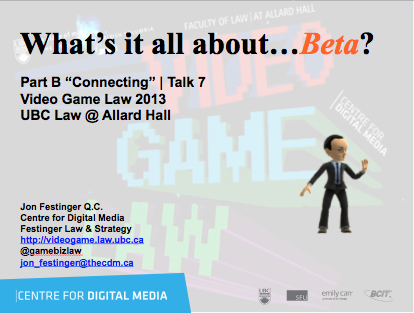
Jon’s Talk – What’s it all about…”Beta”? – An early stage assessment of the utility of EULA’s (etc.):
Continuing with the fundamentals of EULA’s, ToS’, Tou’s & the like:
Creating tends to go with Copyright, which in turn comes with Constraints/Coercion. Connecting tends to go with Contracts, which in turn comes with Restraints/Control. How logical is this really?
The problem with drafting (EULA’s etc.). The re-emergence of User Rights in a contractual context? Applying the Double Standards Test to EULA’s, ToS’ and those who impose them. The need for consumer agreements for the “ bad stuff”: Interpreting the case evidence. What about Notices?
Censoring creative expression through contract terms. How important?
What the cases and pleadings imply about the need for consumer contracts like EULA’s & ToS’ as remedies: A review of the 10 cases from the previous class.
Are we parties to hundreds (thousands?) of “active” contracts that we don’t use? Does it matter? A Common Law chasm if only form matters?
If video game consumer contracts didn’t exist would the gaps be otherwise filled in? Technology, legislation and consumer protest: the future of video game contracts?
Materials:
1. Bragg v. Linden Research, Inc. 487 F.Supp. 2d 593 (E.D. Pa. 2007)
2. Court documents in Hernandez v. Internet Gaming Entertainment, Ltd. United States District Court for S.D. Fla., Case No. 1:07-CIV-21403-JIC, Filed May 31, 2007.
3. Sara Grimes Terms of Service, Terms of Play in Children’s Online Gaming (2007)
4. A. McDonald, L. Cranor The Cost of Reading Privacy Policies (2008)
5. Ryan Calo Digital Market Manipulation (2013)
Discussion Hour:
Guest Speaker: Anoop Desai, Director, Business Affairs/Development Electronic Arts Inc. on negotiating agreements the video game industry.
Class 8: October 30, 2013
Jon’s talk – From Wheelbarrows to Holodecks:
Evolution of consumers as creators.
PC v. Consoles v. Mobile (parallels Eula’s v. ToS v. Crowd/Open source). Evolution of various technologies, products, content & consumers. Evolution of differing legal/regulatory regimes relating to various combinations of the above list including legal treatments, distinctions, questions & problems.
The living room war: a report from the frontlines.
Cataloguing complexities of the “cloud”. Evolving legal concepts of technological neutrality. Net neutrality. “Interop” rights?
Theme of film treatment of games: Tron(s); Gamer; Surrogates; Wreck-it Ralph.
Interactivity, immersion & virtual realities in games; legal issues/ethical conundrums. Live remixing of the real, the virtual and the fully interconnected – IP, contractual and regulatory choices, problems and dead-ends. The further issues and consequences of twisting realities through mobile, AR games, bots, augmented reality games, simulations & Kinnect-ing – living inside your own massively multiplayer 3D copier built world while wearing Google Glass. Virtual currencies, real money.
Multiple contemporaneous screens/devices – sometimes linked, sometimes not = natural fragmentation/diversity of experience. Consequences?
For example, the screen merger/multiple input dilemma: what legal standard applies when different laws, rules and regimes apply to each of the individual components onscreen? For example where a crowd-sourced defamation appears on-screen as part of a group on-line sports viewing experience, will the service provider be seen as an ISP with no liability or a publisher with liability? In other words, which screen within a screen will the Court choose as paramount; or more to the point does the combination of services within a single screen alter the legal analysis?
The not so surprising research results on the consequences of avatar choice – is virtual reality more fair and more equal then reality?
(Cliffhanger – now that we are completely out of control, inebriated on visions of a crazy sci-fi future, we come to the next group of three talks – on Control. We have almost come full circle, from transforming old technologies to a new one, creating with it and connecting through it. We now arrive at the human instinct for order – how we control and consequently are controlled…stay tuned)
Materials
1. Text, pp. 51-55, 157-175, 213-231
2. Atari v. Nintendo 975 F.2d 832 (Fed. Cir. 1992)
3. Sega v. Accolade 977 F.2d 1510 (9th Cir. 1992)
4. Sony v. Connectix 203 F.3d 596 (9th Cir. 2000)
5. Sony v. Bleem 214 F.3d 1022 (9th Cir. 2000)
Discussion Hour:
Guest Speaker: Jennifer Lloyd Kelly, Fenwick & West LLP San Francisco (by video-conference) http://www.fenwick.com/professionals/Pages/jenniferkelly.aspx on imitation, originality & genres in video games.
Part C. Controlling
Class 9: November 6, 2013
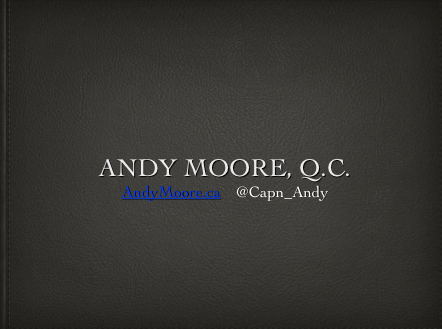
Jon’s talk – Controlling Originality:
“Creationism”; the legal version – exploding a few fictions & myths about originality. Devices, franchises & anti-trust/competition law responses. Reverse engineering, emulations, chipping.
The Clone Wars: deconstructing genres, technology and identity uniqueness through EA v. Zynga – Sim Social v. The Ville; Incredible Technologies v. Virtual Technologies – Golden Tee/PGA Tour Golf; Textron v. EA – Battlefield 3 Bell helicopter; and right of publicity (as opposed to copyright) cases – e.g. the retired NFL players & active college players v. EA Madden/NCAA Football cases; No Doubt v. Rockband (Activision).
The vexing problem of software patents.
Trolling for dollars? – Patents as swords in Immersion v. Sony, & the X-Plane case. “Ghost-car” patent. Feedback controllers. Are these constrictions on user rights? Should they be seen to be?
Free Expression/1st Amendment defences?
(Hook to next talk– Is virtual sex, sex? Is virtual violence, violence? Next week…)
Materials:
1. Text, 7-41, 62-104
2. Incredible Technologies, Inc. v. Virtual Technologies, Inc. 400 F.3d 1007 (U.S.C.A. 7th Cir. 2005)
3. E.S.S. Entertainment 2000, Inc., d/b/a Playpen v. Rock Star Videos, Inc. 547 F.3d 1095 (U.S.C.A. 9th Cir. 2008)
4. Samuel Michael Keller v. Electronic Arts, Inc.et al. (U.S.C.A. 9th Cir. 2013)
Arguments before the U.S.C.A. (36:43)
5. Tetris Holding, LLC v. Xio Interactive, Inc. 863 F. Supp. 2d 394, 397 (D.N.J. 2012)
Discussion Hour
None per se. Andy Moore will be joining us as a guest commentator for the entirety of the class.
Class 10: November 13, 2013
Jon’s talk – “Mass Effect-s”:
A history of legal reactions to (video game) violence highlighted by the Dungeons & Dragons (Waters v. TSR) and Columbine High School (Sanders v. Acclaim) cases. “ What is a deviant violent videogame….as opposed to a normal violent videogame?”
Evolving roles of cultural/societal memes in legal decision making.
Sex and sexism in games & gaming.
Kids & games – secrets of contractual immunity.
Addiction & health issues/evidence.
(Hook to next talk, so freedom has become a stronger meme then causality, but can’t we regulate “the industry”?)
Materials:
1. Text, pp. 143-157, 190-211
2. Watters v. TSR, Inc. 1990 U.S. App. LEXIS 8827, 904 F.2d 378 (6th Cir. 1990)
3. Sanders v. Acclaim Entertainment Inc. 2002 U.S. Dist. LEXIS 3997, 188 F. Supp. 2s 1264 (D. Colo. 2002)
4. James v. Meow Media Inc. 2002 U.S. App LEXIS 16185, 300 F.3d 683 (6th Cir. 2002)
5. Damsel in Distress: Part 1 – Tropes vs Women in Video Games – Anita Sarkeesian (23:35)
Discussion Hour:
None per se. Dr. Kimberly Voll (http://thecdm.ca/people/faculty/dr-kimberly-voll) the Centre for Digital Media will be joining us as a guest commentator for the entirety of the class.
Class 11: November 20, 2013
Jon’s talk – Controlling the Controllers:
Privacy “The Sequel”: scalability not waiver-ability. Contrast with – information gathering through games for state purposes. Layers of privacy, vulnerabilities of surveillance. EULA complicity.
Reconciling: privacy; remixing; interoperability/connectivity/net neutrality/free expression???
Regulation of the video game “medium”. Ratings, regulation and industry self-regulation. Is multiplayer gaming “broadcasting”?
Telecommunications as vehicle of regulation? Consumer protection?
(Cliffhanger to final two talks. The media born of transforming other media itself comes full circle, preparing itself to be transformed…stay tuned)
Materials:
1. Text, pp. 186-190, 213-231
2. Lawrence Lessig on “Aaron’s Laws -Law and Justice in a Digital Age”, Harvard 2013 (1:43:03)
3. Bruce Schneier & Jonathan Zittrain on IT, Security, and Power, Berkman Center 2013 (1:30:21)
4. James Grimmelmann Why Johnny Can’t Stream: How Video Copyright Went Insane ars technica Aug.30, 2012
Discussion Hour:
Guest Speaker: Sheridan Scott of Bennett Jones, Ottawa Ont. (http://www.bennettjones.ca/ScottSheridan/)
speaking on the nexus points of politics, policy & law as applied to some current issues relevant to video-games.
Part D. Conciliation
Class 12: November 27, 2013
Jon’s talk – The Terminator, the Orc & The Ethical Underpinnings of Video-games:
Schwarzenegger v. ESA; Davidson & Associates v. Internet Gateway (Blizzard).
Want some Hot Coffee: The GTA effect as conscious trigger. The creative effect as subconscious rationale. In turn providing the legal vessel for apotheosis…content lives, technology dies and the law follows…
Are video games ethical?
Access, community, real world impacts and despicable behaviour: a case study of Eve Online at its worst – or is that best? A right to play? A right to cheat? The gamification of existence.
Materials:
1. Text, pp. 93-97, 190-211
2. William K Ford The Law and Science of Video Game Violence: What Was Lost in Translation? (2013)
3. Oral argument in Blizzard v. BnetD
4. Oral arguments in Brown v. Entertainment Merchants Association (U.S. Supreme Court)
5. Benjamin Mako Hill, Andres Monroy-Hernandez The Remixing Dilemma: The Trade-off Between Generativity and Originality (Draft 2012)
6. Bruce Springsteen’s SXSW 2012 keynote (audio)
7. Everything is a Remix by Kirby Ferguson, 2012 (36:25)
8. Jonathan Zittrain, Minds for Sale, Berkman Center, 2013 (1:17:03)
Discussion Hour:
Guest Speaker: Brian Dartnell, Senior Counsel Electronic Arts Inc. on the corporate practice of Video Game Law.
GOOD LUCK WITH YOUR PAPERS & EXAMS.
Appendix 1: Digital Repurposing Consent Form
Recording Consent and Release
For value received, I hereby give my consent for my image, likeness, voice, and contributions, including any presentations I give and my contributions to any discussions in which I participate, to be recorded, such as by way of digital recording, videotape, audiotape, or photograph, for use in the development and distribution of educational media for one or both of the University of British Columbia of 2329 West Mall, Vancouver, BC V6T 1Z4 & The Centre for Digital Media of 685 Great Northern Way, Vancouver, BC V5T 0C6 in educational projects related to Law 423B.001 – Video Game Law taught during Spring semester, 2013 at Allard Hall. Any use, copying, or distribution that one or both of the University of British Columbia & The Centre for Digital Media make of any recordings made (“Recordings”), such as publicly distributing the Recordings via Coursera, iTunes U or otherwise will be for educational purposes only.
For value received, I hereby release the University of British Columbia & The Centre for Digital Media and their directors, officers, employees, representatives, shareholders, and agents from any claims of any kind that I or my heirs, executors, administrators, legal representatives, successors and assigns ever had, now have, or may in the future have, whether known or unknown, that could result from the use, copying, or distribution of these Recordings for educational purposes.
Name (please print) ________________________________________
Address ________________________________________
Signature ________________________________________
Date ________________________________________

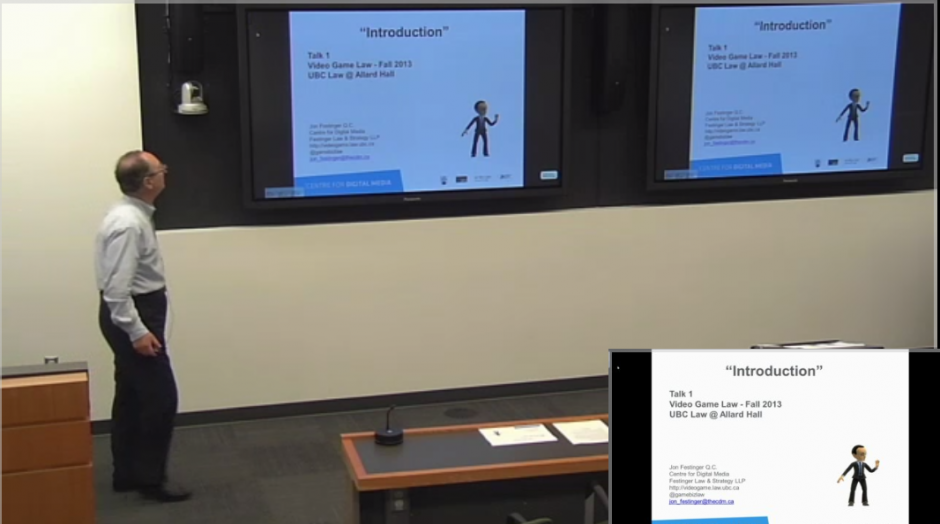
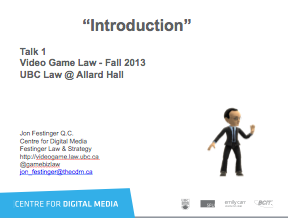
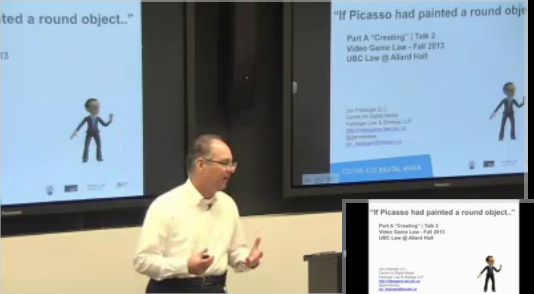
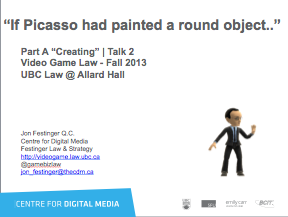
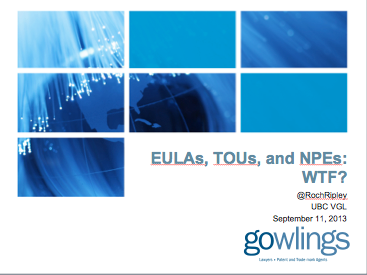
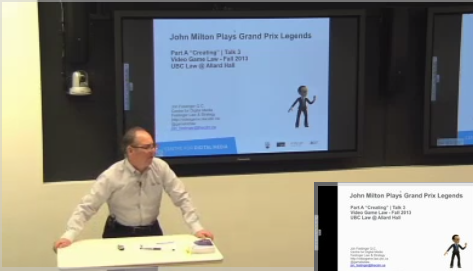
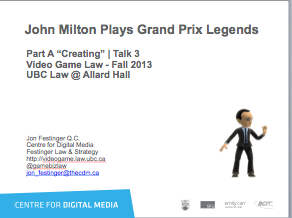
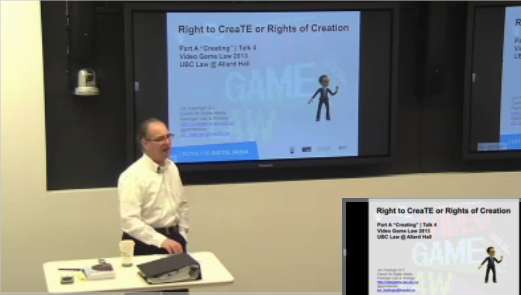
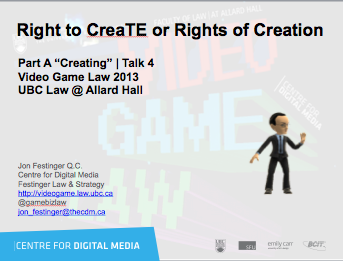
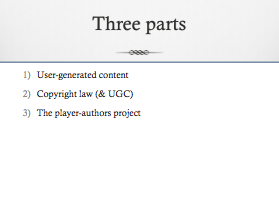
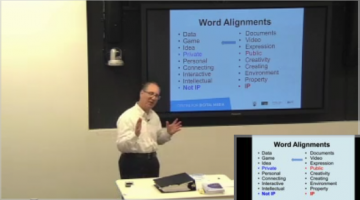
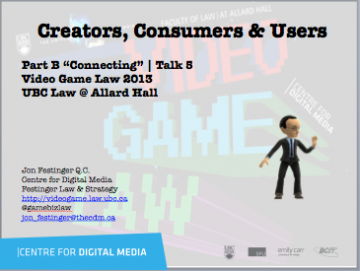
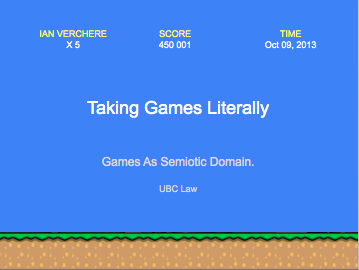
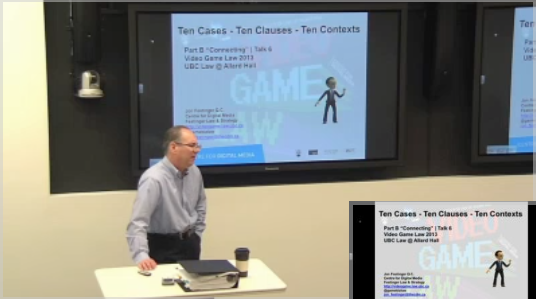
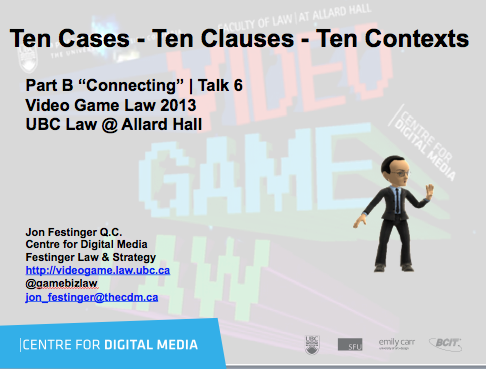
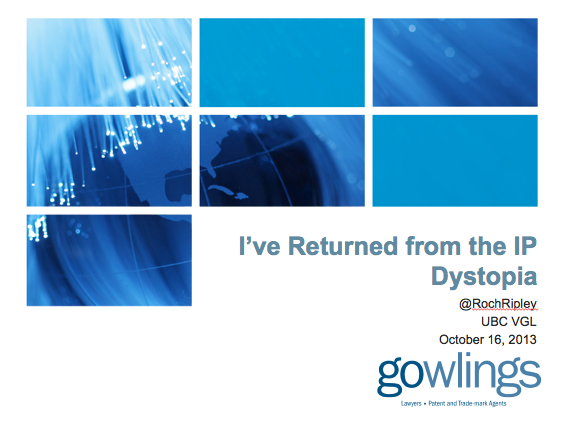
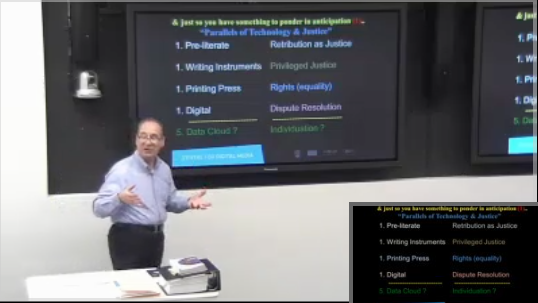
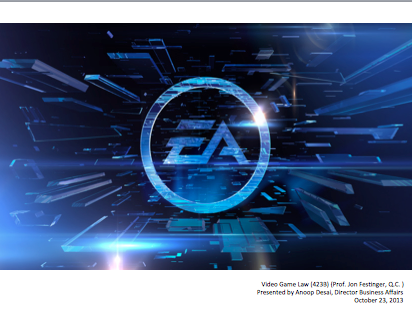
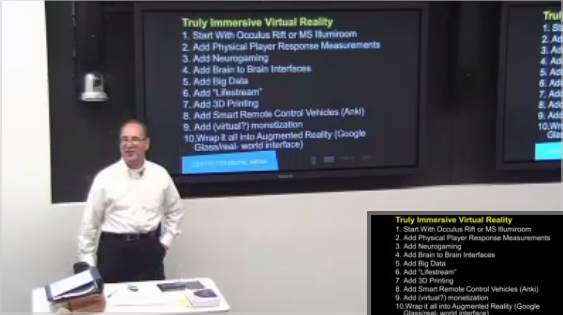
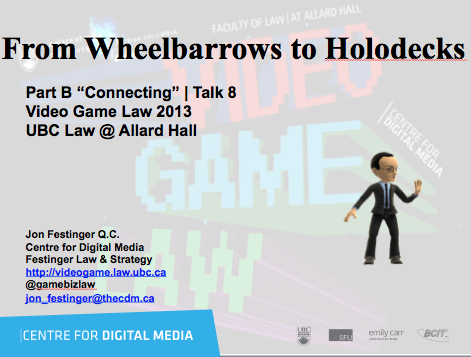
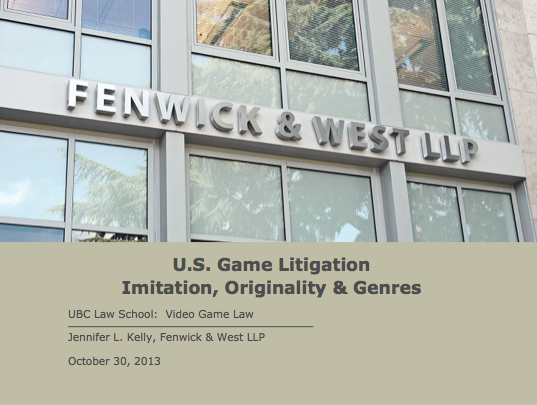
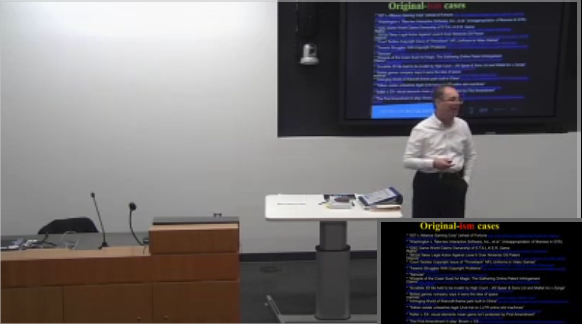
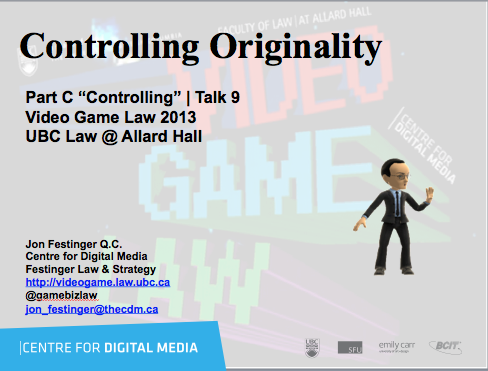
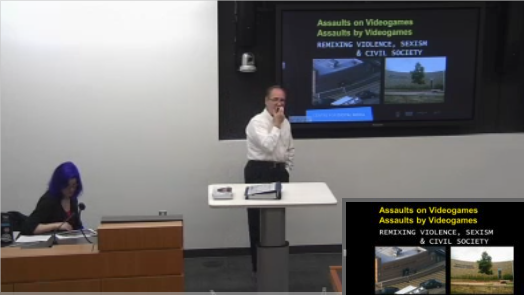
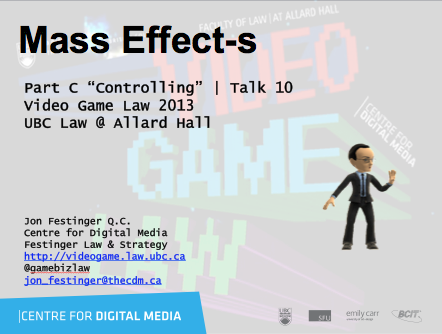
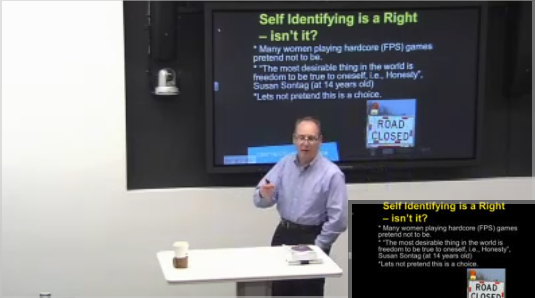
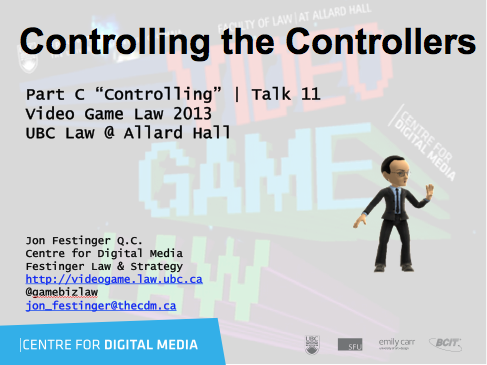
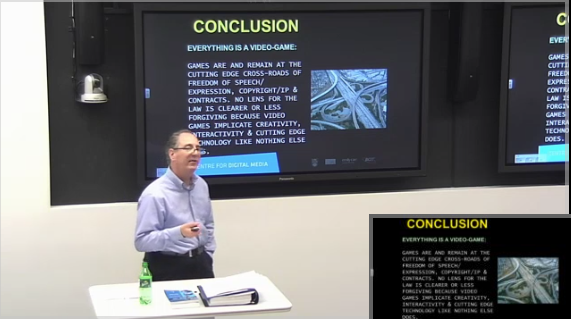
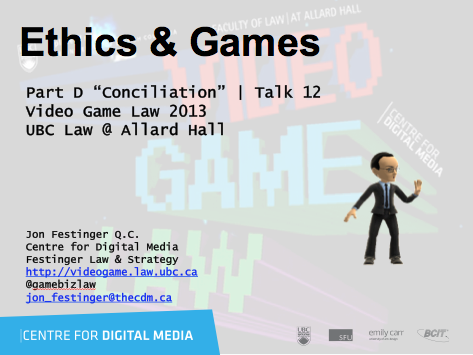
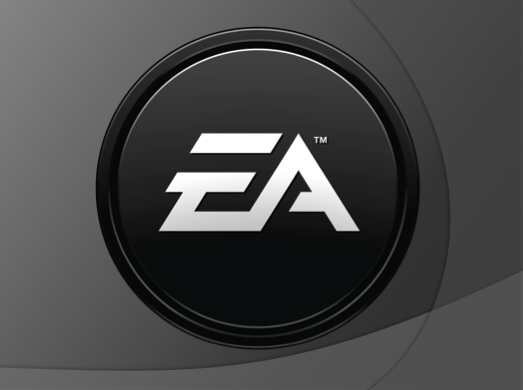
 Communications Law
Communications Law